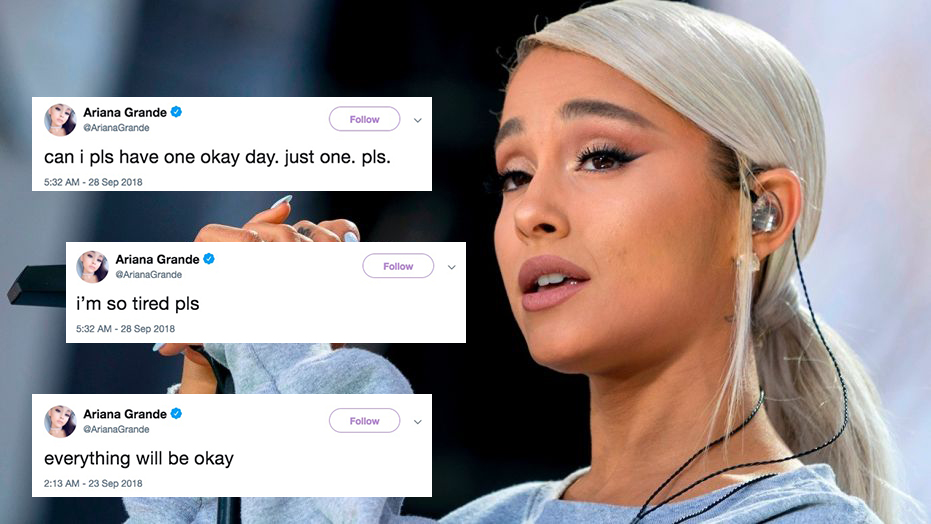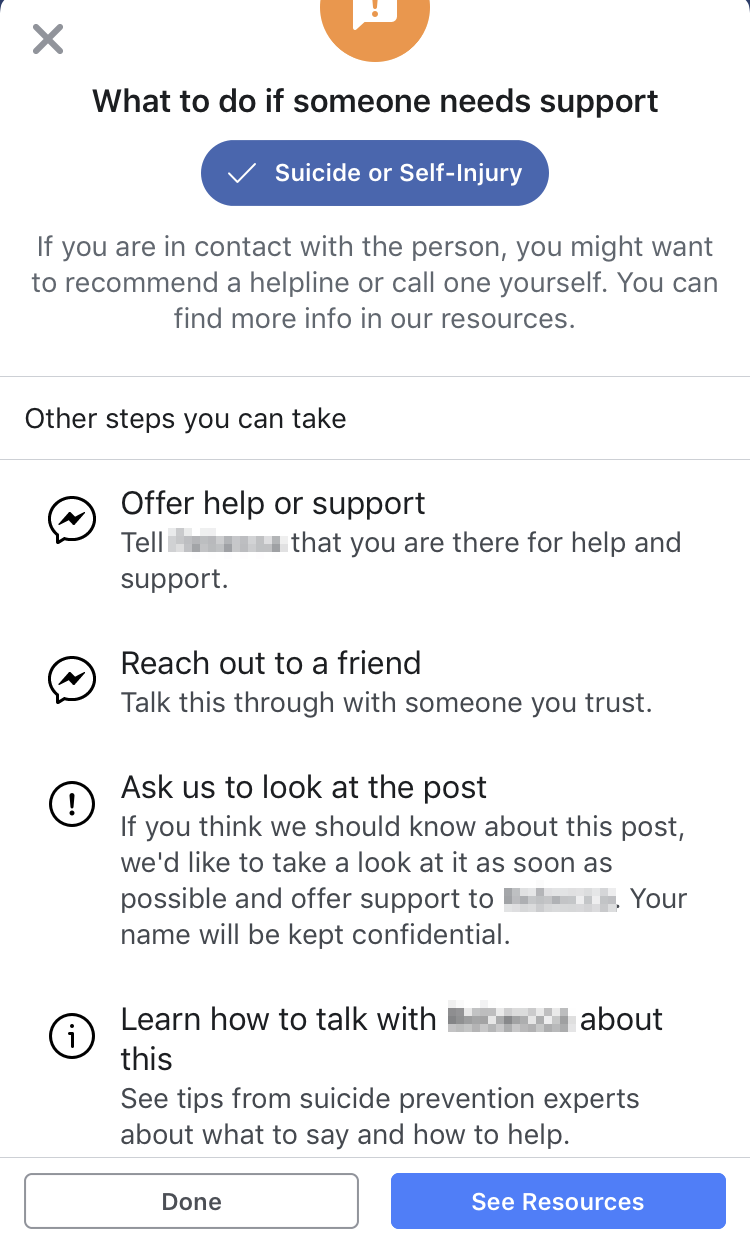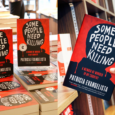Ariana Grande seems like she’s going through something.
In the past few weeks, the singer has tweeted out the following statements:
everything will be okay
— Ariana Grande (@ArianaGrande) September 22, 2018
can i pls have one okay day. just one. pls.
— Ariana Grande (@ArianaGrande) September 27, 2018
i’m so tired pls
— Ariana Grande (@ArianaGrande) September 27, 2018
j fucking k https://t.co/LeY2UGtrSP
— Ariana Grande (@ArianaGrande) September 27, 2018
Following these tweets, Grande dropped out as Saturday Night Live‘s musical performer for its season premiere, citing emotional reasons.
We’re not sure what’s happening with her, but things have been rocky for Ari lately. Just last year, a suicide bomber detonated a bomb inside a packed concert in Manchester, killing 22 people and injuring 59 others. Then she was the subject of media attention when a bishop was accused of groping her during the televised funeral of legendary singer Aretha Franklin. This was quickly followed by the overdose of her ex-boyfriend, rapper Mac Miller, where some people have blamed her for his death.
Whatever Grande is feeling, we hope that she takes the time to open up to her close and personal friends or see a professional.
These tweets are familiar. We’ve seen our personal friends share these kinds of posts across different platforms, and they’re clearly a cry for help. We’ve seen this locally, too. Last year, Maine Mendoza published an open letter on her blog at the peak of her fame, where she revealed that some people have told her that she doesn’t have the right to feel sad and hurt because she’s rich and famous.
When you see these kinds of posts, what should you do?
If you see one of your friends or loved ones exhibit the type of behavior that Grande has been experiencing, offer support. Be there for them and listen. Sometimes people post signs of anxiety, depression, and suicidal ideation on social media, so Facebook has rolled out suicide prevention tools.
By clicking “Give feedback on this post” and selecting “Suicide or self-injury,” you can choose from a list of services, including “Offer help or support,” “Ask us to look at the post” (where Facebook will offer support to the user), or “Learn how to talk to [Name] about this” (where you can get tips from suicide prevention experts about what to say or how to help).
Or better yet, call your friend, set up a date, and offer a listening ear.
We’ve come far in learning how to deal with mental health. Let’s be aware of the signs and know how to react when we see this.
If you’re feeling the same way, do share your feelings with your loved ones. Find a listening ear, whether it’s family, a friend, or a therapist. President Rodrigo Duterte has signed the Philippine Mental Health Law, where Filipinos can gain access to affordable and accessible mental health services.
Feedback has been mixed on the hotlines you can call when you’re feeling down, but you can always try The HOPELINE Project’s hotlines: (02) 804-HOPE (4673), 0917 558 HOPE (4673) and 2919 (toll-free number for all Globe and TM subscribers).






